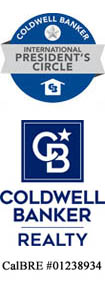Closing Costs for Sellers
There are many costs that go into buying a property and are often loosely grouped as “closing costs”. In the broadest sense these costs would include every expense that is paid at the closing of a sale on top of the purchase price. Who pays these costs, the buyer or the seller? Many of these costs are negotiable and either party may pay them. However, there are customary practices that often vary based on the city, county or state that have over time become common ways these costs are divided. But in all cases they can be negotiated. However, once you go outside the customary practices, if you try to negotiate either that the buyer or seller pays a cost that by custom would not be their expense, it will usually be viewed as a price change up or down depending on who is being asked to pay.
Customary Seller Closing Costs.
The final purchase agreement will specify who pays what. The following are by custom covered by the seller in Sonoma County unless negotiated otherwise :
- Real Estate Commissions.
- County transfer tax.
- City transfer tax.
- Notary fees
- Payoff of all loans in seller’s name
- Paying outstanding interest due on loans through the closing date.
- Interest accrued to lender being paid off, statement fees, reconveyance fees and any prepayment penalties
- Home Warranty (according to contact)
- Any judgments, tax liens, etc. against the seller
- Pro rated share of :
- property taxes
- Homeowner Dues (if any)
- Recording charges for all deeds and other recorded documents.
- Document preparation fee for Deed.
- Any bonds or assessments.
- Any and all delinquent taxes.
Buyers Closing Costs. Buyers generally pay: title and escrow fees, inspection costs, loan fees, recording and notary fees for their documents, Pro-rated share of property taxes and homeowner fees due after closing, home insurance for first year, interest on their loan for first month, etc

